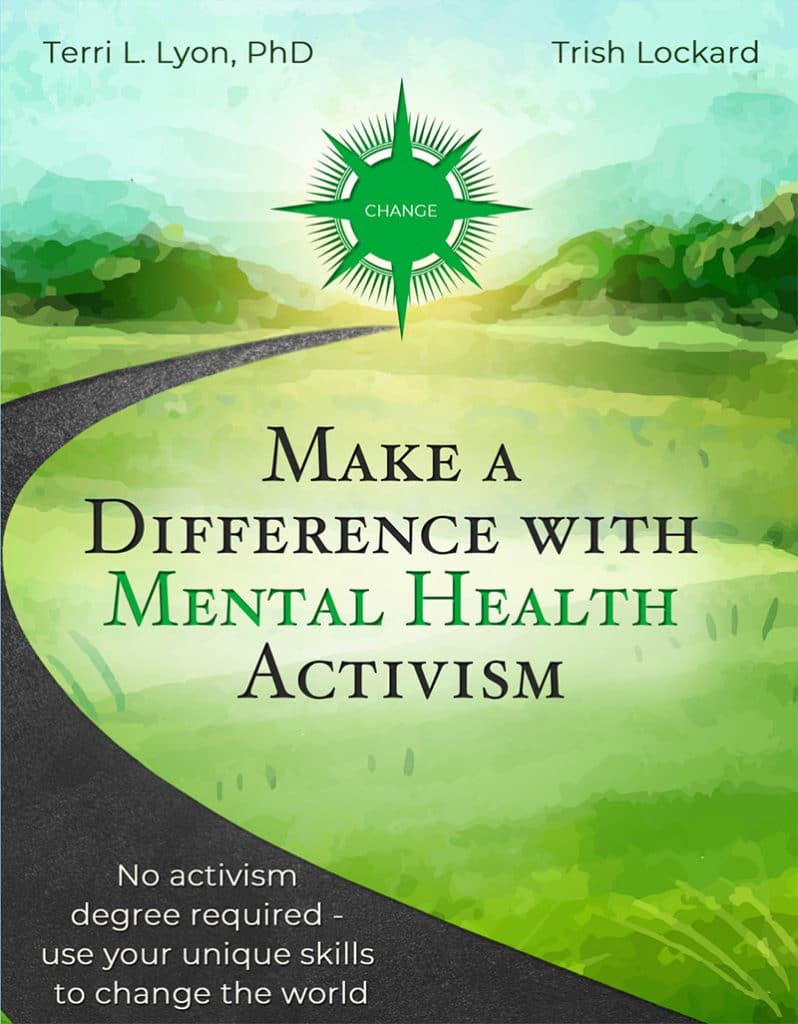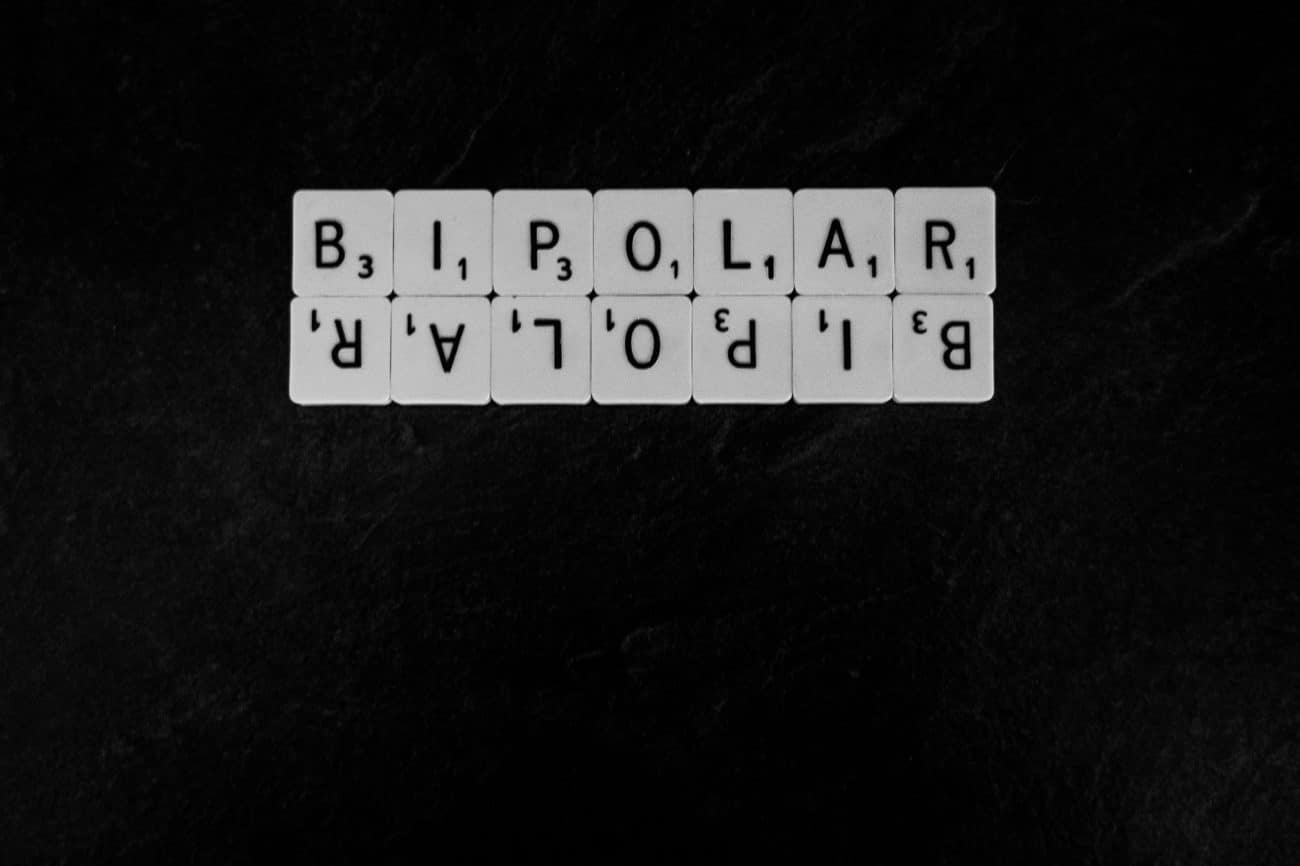- The Ultimate Guide to Journaling: How To Teach Expressive Writing - June 13, 2022
- Journaling: How To Use Writing To Support Your Mental Health - May 27, 2022
- How To Honor National Mental Illness Awareness Month With Action - October 3, 2021
Last Updated on October 23, 2024
Make a Plan, Get Started: Mental Health Activist Gabe Howard Encourages Action, Not Perfection
Mental Health Activists in Action, Part 2: Gabe Howard
Gabe Howard is a notorious whirlwind of activity. He’s a published author, speaker, podcaster, and fundraising emcee extraordinaire. I’ve even seen him dressed as Santa, but that’s another story. Gabe is fun and funny, with infectious enthusiasm. But he can become profoundly serious when asked about mental health and the heartbreak of mental illness, subjects he knows all too well.
A Difficult Diagnosis
Gabe is just one of the roughly seven million people in this country diagnosed with bipolar disorder. So why did he choose to dedicate his life to mental health activism, the fight against stigma, and efforts to change the perceptions toward those with the lived experience?
“Because my experience was terrible and it didn’t need to be,” he says. “I could have gotten help much sooner. My family didn’t have to suffer like they did. I just realized that someone needs to fix this and while I don’t believe I can do it all by myself, I did—and do—believe that I have a role to play. I just don’t want the next person to go through what I went through.”
Activism Work
As an award-winning speaker, author, and podcaster, today Gabe hosts the popular weekly podcast Inside Mental Health. His successful book on the challenges of living with bipolar disorder is boldly titled Mental Illness is an Asshole and Other Observations. If that title offends you, Gabe Howard is sorry. Not.
“Regarding my book, I wrote it to let readers know that I worked really hard to reach recovery with bipolar disorder, but that I did not do it alone,” said Gabe. “I was lucky to have access to health care and I was lucky someone noticed I was struggling and took me to the emergency room. That person saved my life. No one can beat mental illness alone. I really believe that.”
So, while his journey from diagnosis to recovery was a difficult one, Gabe acknowledges it could have been worse.
“It’s not lost on me that being a White, middle-class guy with money, health insurance, and strong family support meant that I got better and faster care,” he said. “That’s not fair. I want everyone to understand the warning signs, I want everyone to have access to care. What I’d like to see happen is for everyone with mental illness to be treated the same.”
Fighting Stigma
Mental health activists must learn to walk a fine line when fighting against stigma and for parity, as they risk drawing fire from the uninformed.
“If you choose to be a mental health activist that means that when someone says something offensive, awful, or stigmatizing, your job is to help them understand why stigma is not cool. I understand the urge to scold people, but that’s not advocacy. That’s revenge.”
He explains that the images people see of those with a mental health disorder often depict a person in crisis, and, more often than not, a very public crisis—a psychotic break involving law enforcement, or a violent crime with multiple casualties.
“News broadcasts and social media play a role in this [one-sided view]. I want to ensure that society sees people with a mental health diagnosis living well. If all people ever see is crisis and suffering then no one will believe that they can get well. That’s a terrible thing, in my opinion. We must have hope.”
Making a Difference
I asked Gabe if he thinks he’s good at what he does and if he is making a difference with his mental health activism.
“I hope people see the value in my work and I do add things like awards and the like to my website bio. Ultimately, if people don’t think I’m successful I probably can’t convince them,” he says matter-of-factly. “In my line of work, there aren’t a lot of hard stats I can quote. I can show them my podcast listens—that is helpful. I can show them the number of people who have hired me to speak.”
His conclusion: if he has to try to convince someone of the value of the activism work he does, he probably will not achieve that goal. They are not “his people.”
Gabe Howard has made a career of offering hope. His advice to others who want to be part of making a difference:
“The most important thing is to do it. Do it. Do not let perfection get in the way of progress. Make a plan and get started and what you learn will help you adjust your plan. Be prepared, but above all else, get started!”
Your Turn

You can be an impactful activist for change for those with the lived experience of mental illness and their loved ones. Be a part of the movement with Make a Difference With Mental Health Activism: No activism degree required—use your unique skills to change the world, by Terri L Lyon and Trish Lockard.
Which of your gifts, talents, and experiences can you use to make change happen for those struggling with mental health disorders? Share your story. Listen to others. Apply your gifts. Tap into your anger. Fight stigma. Demand parity.
The time for change is now.
READ NEXT
Activists in Action Part 1: Karyl Chastain Beal
Living Faith: Surviving and Thriving in the Wake of a Bipolar Disorder Diagnosis
Read Trish Lockard’s Series on Mental Illness
- Think the Pandemic Was Hard? Consider the Impact on Those With Mental Illness
- With Mental Illness You Won’t Get a Casserole
- Stigma: A Thorn in the Side of Mental Health Care
- 12 Creative Ways to Support Mental Health
- The Olympics Opens the Door to Much-needed Athlete Mental Health Conversation
- Realizing The Impact of Mental Illness On My Family (NAMI)
Trish’s Blog at Strike The Write Tone




Pingback: Monday InLinkz Join us at 178 Senior Salon
Pingback: Suicide Prevention at the Heart of Activist’s Memorial Efforts
Pingback: Make a Difference with Mental Health Activism
Pingback: Living Faith: Surviving and Thriving in the Wake of a Bipolar Disorder Diagnosis